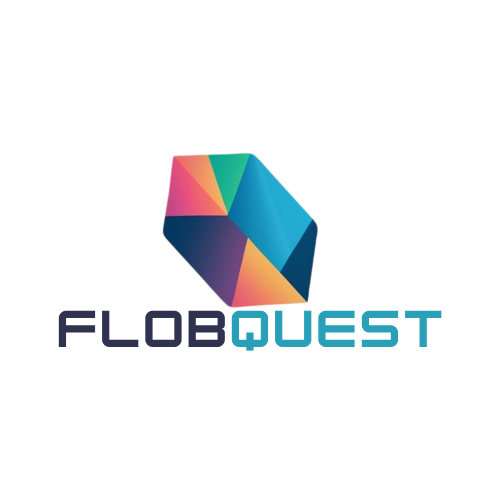Anúncios
The landscape of business technology is evolving rapidly. Companies are consistently looking for ways to leverage technological advancements to enhance productivity and streamline operations. As a result, understanding the future of this sector is vital for businesses planning for longevity and success.
With the emergence of innovations such as artificial intelligence (AI), the Internet of Things (IoT), and blockchain, the tools at businesses’ disposal are more powerful than ever. This evolution is not just about adopting new gadgets or software; it revolves around rethinking processes and integrating these technologies into core functionalities.
Furthermore, the rise of remote work and globalization has created a demand for adaptable and agile technologies. Businesses that recognize and harness these trends will not only survive but thrive in the years to come. This article explores the future of business technology, focusing on key advancements and their implications for various industries.
Artificial Intelligence: Revolutionizing Business Processes
Artificial intelligence is paving the way for smarter business operations. Through machine learning and automated processes, AI helps companies analyze vast amounts of data quickly and accurately. As a result, decision-making becomes more informed and timely.
Moreover, AI can enhance customer interaction through chatbots and personalized marketing. These tools make it easier for businesses to engage customers and meet their needs effectively. As AI technologies mature, they will be integral in personalizing the customer experience.
Anúncios
Additionally, AI-driven analytics provide insights into consumer behavior, helping businesses refine strategies. Understanding trends and preferences allows for product adjustments and innovative solutions. This agility can set companies apart in a competitive market.
However, integrating AI poses challenges. Companies must invest in training and infrastructure to adapt to these advancements. Additionally, understanding ethical considerations is essential to using AI responsibly and transparently.
Ultimately, the future of AI in business holds immense potential. As adoption spreads, firms pioneering these technologies will gain a competitive edge, reaping the benefits of improved efficiency and customer satisfaction.
Anúncios
The Internet of Things: Connecting the Business Ecosystem
The Internet of Things (IoT) is transforming how businesses operate and interact. By linking devices and platforms, IoT allows real-time data sharing and communication among various stakeholders. This interconnectedness creates smarter environments and processes.
Smart devices can monitor inventory levels, ensuring timely replenishment and minimizing waste. Retailers, for example, can leverage IoT to optimize supply chain management, leading to reduced costs and improved efficiency.
Additionally, IoT fosters enhanced customer experiences. By collecting data from user interactions, businesses can personalize services and provide relevant recommendations. This customization builds loyalty and satisfaction, essential in the modern marketplace.
However, the implementation of IoT comes with security risks. Protecting sensitive data from breaches is critical for maintaining consumer trust. Companies must prioritize cybersecurity measures during IoT deployment to mitigate these vulnerabilities.
In summary, the IoT will play a pivotal role in shaping the future of businesses. As organizations leverage interconnected technologies, they can unlock efficiencies and insights that drive growth and innovation.
Blockchain: Ensuring Security and Transparency
Blockchain technology is redefining how businesses handle transactions and data. Its decentralized nature allows for secure, transparent record-keeping, minimizing fraud and errors. This reliability is crucial across industries, particularly in finance and supply chain.
Furthermore, blockchain enhances traceability. For companies in the food and pharmaceutical sectors, tracking products from origin to consumer is vital for safety and accountability. This transparency can bolster customer confidence and strengthen the brand.
Moreover, smart contracts automate processes and reduce the need for intermediaries. By streamlining transactions and agreements, businesses can lower costs and improve operational efficiency significantly. Automation through blockchain simplifies complex processes.
Nevertheless, the integration of blockchain is not without challenges. Organizations must navigate regulatory frameworks and invest in technology and training. Understanding the implications of blockchain is essential for successful implementation.
In conclusion, blockchain presents an exciting frontier for businesses. By ensuring security and transparency, it offers unique opportunities for fostering trust and innovation in commerce.
Cloud Computing: Enabling Flexibility and Scalability
Cloud computing has transformed how organizations manage resources and data. It provides on-demand access to services and storage without significant upfront investments. This flexibility is beneficial for businesses of all sizes, enhancing operational capabilities.
Additionally, cloud solutions enable teams to collaborate seamlessly from anywhere. With remote work becoming mainstream, the ability to access files and applications online is more critical than ever. Cloud technology fosters teamwork and productivity, regardless of location.
Moreover, scalability is a significant advantage of cloud computing. Businesses can quickly adjust their services as needed, allowing for growth without the constraints of traditional infrastructure. This adaptability supports dynamic market demands.
However, companies must carefully select cloud providers. Data security and compliance should be priorities during implementation to protect sensitive information. Ensuring reliability and performance is crucial to maintaining operations.
Ultimately, cloud computing is essential for businesses looking to thrive in a digital age. By leveraging its capabilities, organizations can enhance efficiency, foster collaboration, and drive growth.
Remote Work Technologies: Shaping the Workforce of Tomorrow
The shift toward remote work has stimulated the development of specialized technologies. Tools for video conferencing, project management, and team collaboration have become staples for many organizations. This evolution impacts how businesses engage with employees and stakeholders.
Moreover, effective remote work technologies enhance productivity and employee satisfaction. By providing flexibility and a better work-life balance, organizations can attract top talent. This shift in workforce dynamics has lasting implications for recruitment strategies.
Additionally, using advanced technologies fosters innovation. Remote teams can collaborate across geographies, bringing together diverse perspectives. This collaboration can lead to creative problem-solving and unique solutions, propelling businesses forward.
Nonetheless, organizations must address challenges associated with remote work. Ensuring consistent communication and maintaining company culture is crucial. Investments in training and ongoing support can facilitate this transition.
In summary, remote work technologies are revolutionizing workforce dynamics. Companies that embrace these tools will be well-positioned to navigate future challenges and opportunities.
Data Analytics: Driving Informed Decision-Making
Data analytics is at the forefront of modern business strategy. As organizations generate vast amounts of data, analytics tools enable them to extract valuable insights. These insights drive informed decision-making and strategy formulation.
Moreover, businesses can identify trends and consumer preferences through data analysis. This understanding allows for tailored marketing strategies and product offerings, enhancing customer engagement. Utilizing data fosters deeper relationships with consumers.
Additionally, predictive analytics can help organizations anticipate market changes. By analyzing historical data, companies can forecast trends and align resources accordingly. This proactive approach is essential for maintaining a competitive edge.
However, the sheer volume of data can overwhelm organizations. Establishing clear data governance policies and frameworks is vital for ensuring accuracy and reliability. Managing data effectively is crucial for successful outcomes.
In conclusion, data analytics will continue to shape business technology. Organizations prioritizing data-driven decision-making will position themselves for long-term success and growth.
Conclusion
The future of business technology promises exciting opportunities and challenges. By understanding and embracing advancements in AI, IoT, blockchain, cloud computing, remote work, and data analytics, organizations can enhance efficiency and competition.
Investments in these technologies will be pivotal for businesses seeking growth and innovation. Adopting a proactive approach can foster agility and resilience in a rapidly changing environment. It is essential to prioritize security and ethics throughout this transformation.
Ultimately, the integration of these advancements will redefine how businesses operate, engage with customers, and navigate their markets. As they adapt, organizations will position themselves for success in a tech-driven future.



